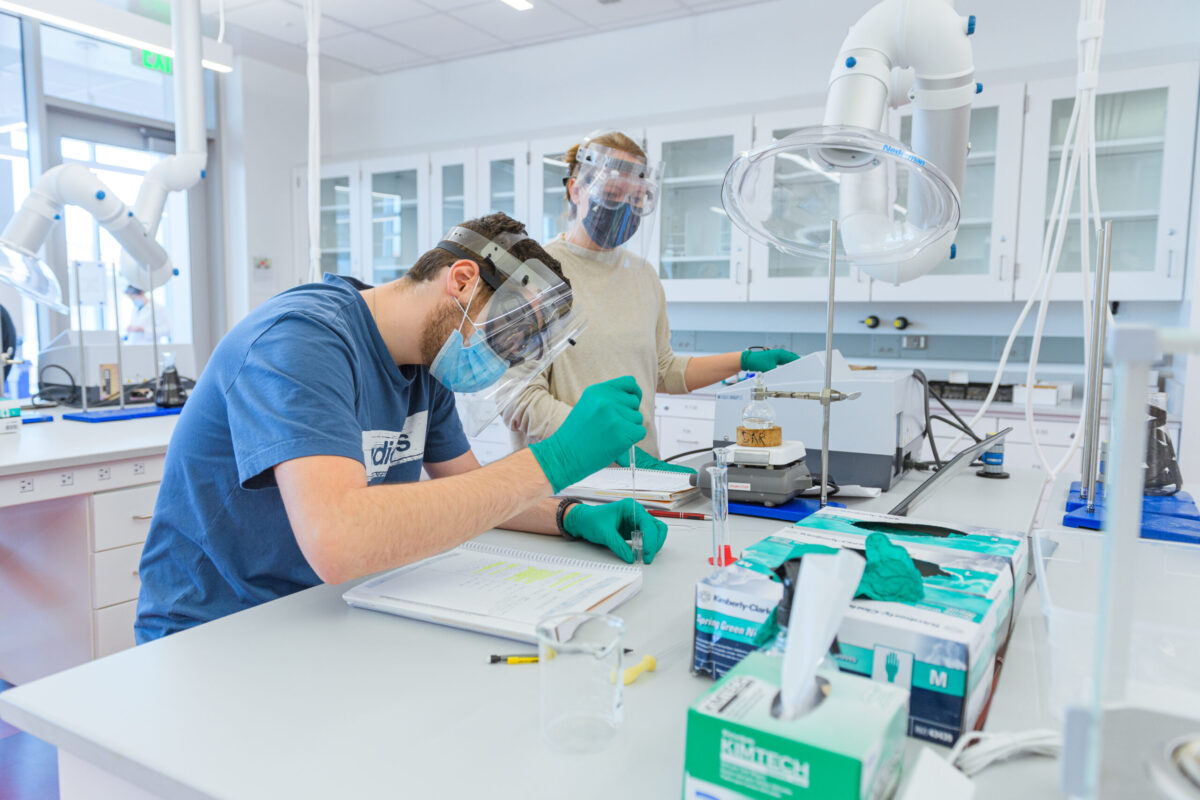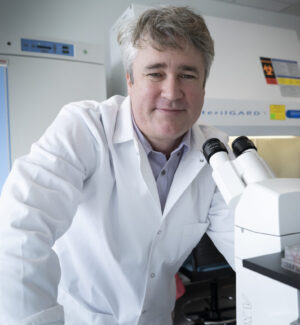Purdue biomedical health sciences major offers students holistic path to professional school
Written By: Rebecca Hoffa, rhoffa@purdue.edu

Biomedical health sciences students have opportunities to explore how science applies to human health, taking courses in health sciences, biology, chemistry, physics and more.Purdue Marketing and Communications
While there are many unique paths at Purdue University that can lead a student to professional school, the biomedical health sciences major in the College of Health and Human Sciences (HHS) offers students a diverse perspective and expansive course line-up that prepares them to understand health sciences more broadly. This not only prepares students with a wide range of skills to apply science to healthcare but also offers opportunities for students to explore health-related career opportunities beyond professional school.
Renamed from health sciences pre-professional to biomedical health sciences in fall 2021, the major is housed in HHS’ School of Health Sciences and is one of several STEM majors in HHS that has experienced tremendous growth among students who have interests in the medical field, reaching a record 738 students enrolled in fall 2022.
Ultimately, the major adopted a new plan of study along with the new name to offer flexibility for students to explore a variety of areas within health sciences, going beyond standard science tracks. The major currently offers five concentrations: interdisciplinary health sciences, pre-dentistry, pre-medicine, pre-optometry and pre-physician assistant.

Mark Wilson
“We’re not focused on a particular science — they are taking courses in biology, chemistry and physics, but they’re also taking courses in public health and a number of different health science areas to expand their view of human health,” said Mark Wilson, clinical assistant professor of health sciences and director of the biomedical health sciences program. “We’re looking at healthcare more holistically, and I think that’s appealing to students.”
The biomedical health sciences major has prepared students for a variety of successful paths after graduation, including entry-level positions in pharmaceutical and biotech companies; professional school; and master’s or PhD programs.
From doctors who noticed their courses put them ahead of their peers in medical school to physician assistants who found their undergraduate experience helped them better understand patient care, many alumni credit the major with making them more well-rounded health professionals. Most recently, 2022 Tyler Trent Courage and Resilience Award recipient Eric Magallanes shared his story of persistence to pursue dental school — a journey forged through the biomedical health sciences major’s classroom learning opportunities and research experiences — while battling oral cancer.
Like Magallanes, junior Kelsey Kruyer is also majoring in biomedical health sciences with a pre-dentistry concentration. For Kruyer, the biomedical health sciences major was really the perfect option to explore electives that focused on dentistry while also getting a broader view of human health, from physical health and medicine to environmental health.

Kelsey KruyerPhoto provided
“I didn’t want to fully invest all my time in one discipline,” Kruyer said. “This (major) kind of dabbles in all those health sciences classes, which I liked more than just strictly biology or chemistry.”
Wilson’s role as director of the program is not only to monitor general requirements of professional schools to ensure the major meets most schools’ general qualifications but also to continue to build up selective course opportunities to create valuable learning opportunities for students. These selective courses include topics on imaging in health sciences, oncology, lung and heart physiology processes, toxicology, environmental health and more.
“We want students to have an experience where they’re able to interact more in class, and in order to do that, you need a large variety of courses, which are small enough to encourage discussion and appeal to a broad number of students in the major,” Wilson said.
Kruyer noted that her favorite class in the major has been an environmental health science course she took with Professor Jennifer Freeman. Because the major also allows students to explore the School of Health Sciences’ other areas of expertise, including occupational and environmental health sciences, radiological health sciences and medical laboratory sciences, students have opportunities to be competitive in additional career areas that are in high demand, even beyond traditional medicine.
“I definitely think that it’s given me a more holistic view of the medical field,” Kruyer said.

Aaron Bowman
In addition to classroom learning, the major also offers a variety of opportunities for students to get hands-on experience, including research with Health Sciences faculty members, health-related student organizations, and opportunities to pursue clinical internships and scribe positions.
Because there are so many different routes to getting accepted into professional school, Aaron Bowman, professor and head of the School of Health Sciences, noted that it’s important for students to choose the major that best aligns with their interests. For students interested in how science broadly informs decisions made in a clinical setting, the biomedical health sciences major is often just that.
“Students might pick biomedical health sciences because their primary interest is not a specific type of science but how science overall applies to human health, so if that is their principal interest, then this is the right major,” Bowman said. “Because they’ll get the background in biology. If it weren’t for our colleagues in biology, chemistry and physics, our students wouldn’t be able to succeed. They need that, but they also are choosing courses across the range of health-related research.”
Discover more from News | College of Health and Human Sciences
Subscribe to get the latest posts sent to your email.